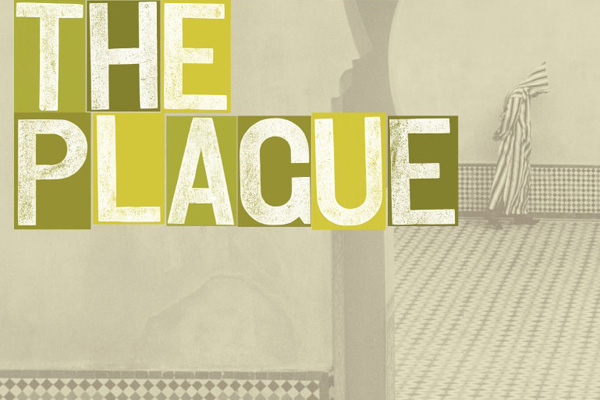The Plague
by Albert Camus
The small French Algerian town of Oran is closed off, with nobody allowed to enter or leave, and the epidemic escalates. People consume alcohol and peppermints, lock themselves in their houses, pray, and spit on and shoot cats and dogs, believing this will ward off the plague. But the microbe is indiscriminate, infecting the young, the careful and the godly alike. Authorities struggle to deal with the rising death count, and funerals become more and more hasty, until they are barely more than a signature on paper.
The Plague is a story about the reaction of a small group of men to the horrors of a seemingly unbeatable pestilence. Dr Castel frantically tries to manufacture a vaccine, while Dr Rieux spends long days treating the plague’s hopeless victims. He lances buboes, administers serums and then tears patients from their families to be sent to makeshift infirmaries, where the vast majority die. People flock to the church where Father Paneloux preaches hell and damnation to sinners, believing the plague to be a punishment from God. But after watching a young boy die a prolonged and tortuous death, Paneloux admits that he must either deny God or accept evil against innocents.
Plague is portrayed as ever-present – sometimes dormant, but never absent. It is compared to the evil which can erupt unexpectedly in humans – from individual cruelties to grand-scale evils, such as fascism. Dr Rieux’s friend Tarrou remembers the horror of realising his father, a judge, was sentencing people to death by guillotine. He says: “Yes, I’ve been ashamed ever since; I have realised that we all have plague.”
Written in the wake of World War II, the book alludes to the experiences of French citizens under Nazi occupation. Camus says: “I wish to express through the plague the suffocation which we have all suffered, and the atmosphere and threat and exile in which we have lived.” There are direct references to France under German occupation, such as a strict curfew, a shortage of electricity, stockpiling of scarce goods, and vast quarantine camps in the city. Citizens are slow to realise the magnitude of the danger they are in, because they do not believe in the pestilence, just as people did not believe that Germany, whom the French had defeated just 20 years earlier, could take over their country. People’s attitudes change from denial to a kind of acceptance, and they watch loved ones carried off with a grim complacency.
Repetition heightens the sense of claustrophobia. While the doctor treats endless patients who are doomed to death, a journalist plays his only record over and over again, a novelist writes and rewrites the opening sentence to his book, and the cinemas run the same films again and again. An old asthma patient who has spent the last 25 years in bed marks time between meals by methodically transferring dried peas from one pot to another. All the while ambulances ferry bodies to mass graves, returning to pick up the next load, back and forward over the abandoned streets. The dead rats are initially acknowledged as individual curiosities, but, as the bodies pile up, quickly become a mass phenomenon. Then the same happens with the humans; personal tragedies become so repetitious that people – alive and dead – lose individuality and become a singular, statistical event.
The Plague can be read straight as a highly entertaining disaster story, but also as a human reaction toward the absurd. Dr Rieux and his comrades’ fight against the indiscriminate and mindless microbe of bubonic plague reflects the reality that as humans we ultimately have no control, and irrationality of life is inevitable.



